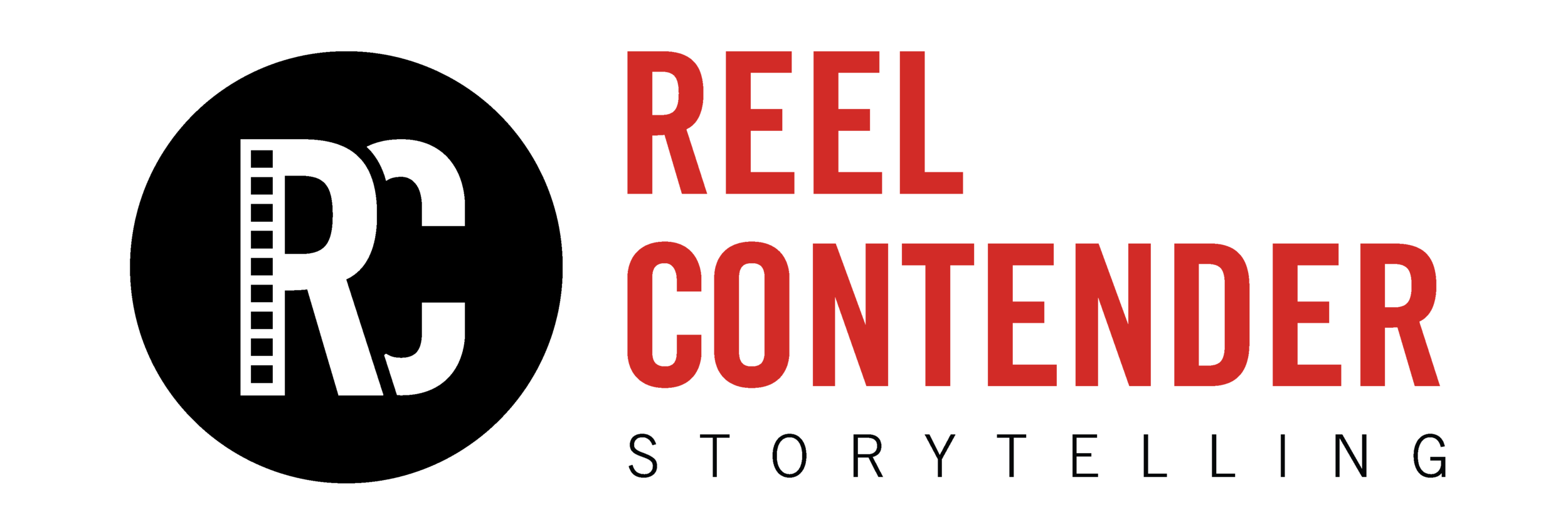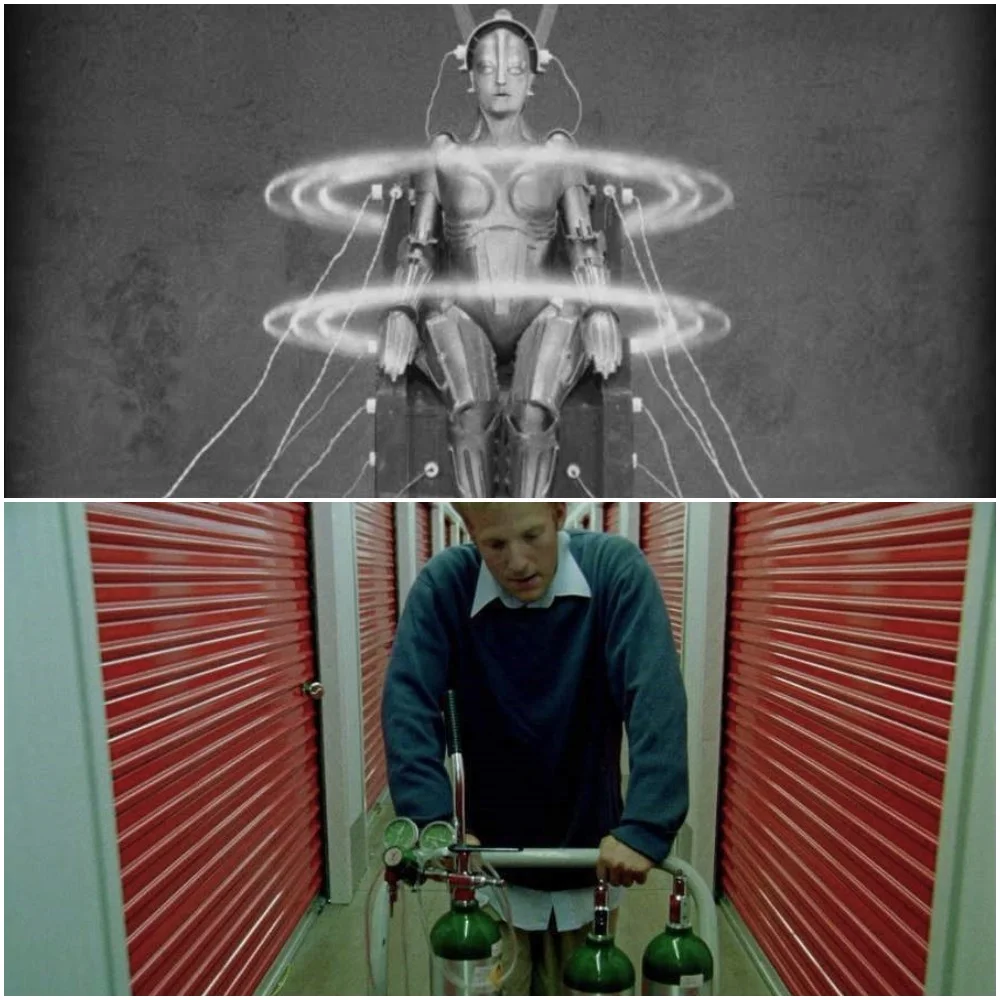Sci-Fi To Love: Old and New!
Written by Brie Porter
Science fiction is awesome. Want a story about aliens? Giant monsters? Maybe futuristic socio-political commentary? It's all there! But recommendations are difficult. We're here today with the goal of expanding your horizons. We've paired classic sci-fi films with similar, more modern ones. If you like one, you may like the other. We certainly do!
The Day the Earth Stood Still (1951) & Arrival (2016)
If Amy Adams just had to translate “Klaatu Barada Nikto”, Arrival would be a much shorter movie.
Aliens land on Earth. What do we do? Well, we try to understand them. There you have it—that’s the premise of both these films. The spaceman of The Day the Earth Stood Still lives covertly among humans, learning of our society. He’s on a peace mission, but the military doesn’t see it that way. The military never understands aliens, it seems. The people of Earth in Arrival at least make an effort to decode the intentions of our otherworldly visitors.
Nausicaa (1984) & WALL-E (2008)
Look at this plant. Neat, huh?
Post-apocalyptic wastelands in a kid’s film? Epic adventures to restore beauty to the Earth? Yes, please! These animated films have a lot going for them. They both come from animation giants (Studio Ghibli and Pixar, respectively). Nausicaa follows an intelligent girl who is seeking to save her village from an encroaching toxic jungle. Conversely, all plants in WALL-E have disappeared, making the Earth unlivable. These sweet stories invite a love for nature.
Galaxy Quest (1999) & Guardians of the Galaxy (2014)
By Grabthar's hammer... I am Groot.
Comedy! Laughter! Sci-fi can take itself so seriously; sometimes it’s just begging us to poke fun. Both of these films trek across the stars with fantastically witty characters. Guardians of the Galaxy combines the wild west, space opera, and a healthy dose of 80s rock to create an unforgettable adventure. One of the best Marvel films, hands down. Galaxy Quest takes real-world actors from a sci-fi TV show and sends them into space to fight actual aliens. A killer comedic cast (Tim Allen, Sam Rockwell, Alan Rickman, etc.) keeps the laughs coming.
Bonus: If you like these, do yourself a favor and check out Joss Whedon’s Firefly TV show. You’re welcome.
The Fly (1958) & District 9 (2011)
A face only a mama bug could love.
Why are there so many monster movies in the sci-fi genre? Are we worried that we will be destroyed in our ever-increasing pursuit of innovation? Or perhaps we cling tightly to the things that qualify us as “normal” in society and deeply fear that, one day, we'll find that we have become “other”? Whatever the answer, The Fly and District 9 explore that blurry line between monster and man. Character transformation is fascinating. I particularly love that both of these films keep us sympathetic to the “monster”. Plus, the creature design is pretty fun.
Warning: There’s also a Cronenberg version of The Fly from the 70s. If you don’t know who David Cronenberg is, this may not be the version for you.
Blade Runner (1982) & Blade Runner 2049 (2017)
Deja vu.
Maybe it’s cheating to pair sequels in this list. Eh, well. The original Blade Runner paved the way for all your favorite stories of dystopian futures. Ridley Scott's direction combined with Harrison Ford at his peak make for a legendary film. Even so, I personally love 2049 much more than the original. It's a crime, I know. Director Denis Villeneuve (Arrival) builds a tragically hopeful story in a seemingly bleak world. Whichever you prefer, the Blade Runner franchise is a staple of classic sci-fi cinema.
Gojira [Godzilla] (1956) & The Host (2006)
Something's in the water...
Please don’t confuse these for their American counterparts. Godzilla has a million subpar films in its franchise, and The Host… well, it unfortunately shares its title with a certain Stephanie Meyer film. The original Godzilla was released less than a decade after the bombing of Hiroshima. Japanese filmmakers poured their grief into this symbolic monster story, and it’s heartbreaking. Maybe you don’t choose your monster movies by how much they make you cry, but I do. The Host also tugs at the heartstrings with allegorical tragedy. South Korean director Bong Joon-ho presents us with a terrifying river monster—a mutated product of improper chemical waste disposal. Inspired by real events, you just know that the U.S. military is to blame. There seems to be a trend in monster movies that science and the military overstep their bounds and the natural world strikes back. No subtext there, right?
Fantastic Voyage (1966) & Interstellar (2014)
Seatbelts, everyone!
These two really deliver on the spectacle of a film-going experience. Interstellar explores the expanse of space, while Fantastic Voyage dives into the human body. These films are “science-lite”: filled with interesting scientific facts, but never to the point of becoming boring. It’s like The Magic School Bus takes a trip into an award-winning, dramatic film.
Forbidden Planet (1956) & Moon (2009)
Another day, another planet.
Both of these films have some heavy spoilers, so be careful what you Google. Forbidden Planet is an inventive re-imagining of Shakespeare’s "The Tempest", but in space! That may sound corny (and it is at times), but isn’t that what we love about science fiction? Moon is very nearly a one-man-show for Sam Rockwell as he prepares to leave his three-year mission on the moon. At the end of the day, both films are about compelling characters grappling with intriguing moral dilemmas. It's easy to forget these stories take place on strange planets.
Colossus: The Forbin Project (1970) & Her (2013)
All's fair in love and war... and robots.
Artificial intelligence is scary. But does it have to be? These two take the concept of robotic assistance to extremely different conclusions. In one, the U.S. government entrusts its nuclear launch codes to a computer. You can imagine the disastrous results. In the other, a sentient program forms a deep, emotional bond with its user, creating an unconventionally sweet love story. Two very different treatments of the same premise, both equally worth a watch. And Scarlett Johansson voices a very compelling robot. Guess which one she’s in?
Invasion of the Body Snatchers (1956) & Star Trek: First Contact (1996)
Who's afraid of the hive mind? Not we.
Remember how the Red Scare was a thing? Filmmakers sure do. It’s deeply unsettling to believe that your neighbor could be a foreign spy, let alone a creature from another planet. I think what really scares us is the idea of losing our individual identity. Invasion of the Body Snatchers details a story of an alien race that creates an exact replica of a person, then disposes of the original. Invasion has been remade several times, but you can't beat the classic. The 1978 version with Leonard Nimoy is a close second. Insert a joke about Nimoy, and we flow neatly into Star Trek. See what I did there? First Contact does not have Spock, but it does feature Sir Patrick Stewart. The Borg of First Contact are far less subtle, as they inject a human with robotic nanites to enslave them to the hive mind. These are definitely not films to watch alone.
...
And, as a bonus:
Metropolis (1927) & Primer (2004)
Isn't science wonderful?
These two films are not at all alike, but any hard-core sci-fi fan needs to be aware of them. Metropolis, from legendary German director Fritz Lang, is credited as the first feature-length science fiction film ever. It features a stylized future that set the tone for every dystopia to follow. Truly the best design the 1920s had to offer. Primer, on the other hand, is an independent film made on a scant budget of $7,000. The low finances are glaringly obvious, but the content is nothing short of brainy. It portrays time-travel in a hyper-realistic way that'll make your smartest friends wet themselves. Just try to keep the timeline straight. These two films represent a full range of potential of sci-fi stories. Plus, casually name dropping them can make you seem really cultured at work parties.
How'd we do? Did we miss any of your favorites? Let us know!











